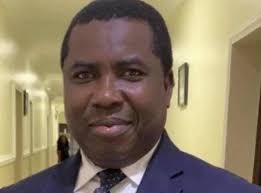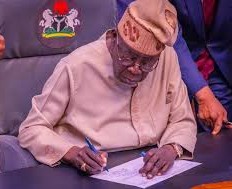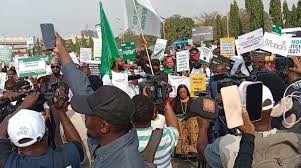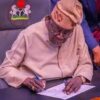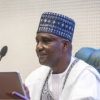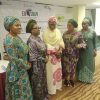Media reports and speculation regarding the appointment of a new Chairperson for the Independent National Electoral Commission (INEC) ended on Thursday when President Bola Ahmed Tinubu nominated Professor Joash Ojo Amupitan for the position. The role of INEC Chairman has consistently presented challenges for any appointee. The Commission suffered reputational damage with the way it
Media reports and speculation regarding the appointment of a new Chairperson for the Independent National Electoral Commission (INEC) ended on Thursday when President Bola Ahmed Tinubu nominated Professor Joash Ojo Amupitan for the position. The role of INEC Chairman has consistently presented challenges for any appointee. The Commission suffered reputational damage with the way it ended the 2023 general election.
So much has been said about the new helmsman, who is assuming office 16 months before the next general elections. He is eminently qualified and has varied experiences that should serve his purpose in that office. He has his job well cut out for him and must hit the ground running after his Senate confirmation and swearing-in by the President. Nigerians should expect an INEC that respects its own regulations and procedures. It goes without saying that it should always give effect to court orders.
On his table, he will find the INEC 142 reforms’ post-election recommendations to federal lawmakers, eight of which require amendments to the 1999 Constitution or the Electoral Act 2022; 86 of the recommendations are administrative in nature, and 48 require multi-stakeholder action. The recommendations cover voter accreditation, result transmission and stronger sanctions for electoral offences—issues that attracted public criticism during the 2023 polls.
Time is of the essence.
The National Assembly is today, Monday, holding a public hearing on the amendment to the Electoral Act 2022. INEC guidelines and timetable for elections often take a cue from the Electoral Act and the Constitution. The Anambra off-cycle election is next month. He is coming on board against the background of a deficit of trust in the Commission by many Nigerians. He will need to resolve the controversies and other unaccomplished tasks that created the deficit of public trust. He will work extra hard to rebuild and regain public trust. This will go beyond mere rhetoric.
He will need to improve organisational efficiency and surmount logistical challenges that continue to undermine election credibility in Nigeria. He will do well by addressing the technological challenges that arose from the 2023general election and take the INEC deeper into the deployment of technology in its processes and the electoral process. His predecessor introduced key technologies like BVAS and IReV, but their rollout contributed to trust concerns for the Commission. He should support the push for the unbundling of the INEC and free the institution from the complaints of insufficient prosecution of electoral offenders.
Will the INEC, under Prof. Amupitan, be able to advance the issue of electronic voting? Full electronic voting will resolve many electoral problems for Nigeria. The lack of a fully automated process continued to be a point of frustration for many Nigerians. The 2023 general election faced severe criticism after the IReV portal failed to transmit presidential election results in a timely and transparent manner. This delay, which INEC blamed on technical glitches, fueled public distrust and allegations of manipulation, undermining the transparency the portal was meant to ensure.
Agenda Setting for A Renewed INEC
The foregoing notwithstanding, the new INEC boss will need to ride on his goodwill and the opportunity of his confirmation hearing at the Senate, push for an urgent review of the legal framework for the 2027 general election. Terminologies like transferring and transmitting should be well defined and not be left to mischievous and incoherent judicial interpretations. While it is looking like an uphill task to secure a constitutional review before the elections, an amendment to the Electoral Act 2022, as amended, is still possible. The amendments to the Act should clear all ambiguities, especially on the issue of technology. While this is in progress, the INEC should start fine-tuning its operational challenges from within.
A New Voter Register
That the voter register is bloated is an understatement. There are 93,522,272 on the register as of 2022, but there has been a declining number of voters in every election. In 2011, only 53.7% of the registered voters exercised their franchise in the election. By 2023, it had declined to 26.7%. Different reasons could be adduced for this, ranging from general apathy to inconveniences or relocation and mistrust. Beyond those factors, the register should be purged of all underage voters, duplicated names and millions of deceased Nigerians still populating the register.
Prof Amupitan must address entrenched interests within INEC that favour the current voter register for perceived geopolitical benefits. Cleaning the register is essential for credible elections. BVAS has reduced multiple voting, explaining the lower percentage of voters compared to total registrations.
Vote Buying
Vote buying continues to pose a significant challenge to the conduct of free, fair, and credible elections in Nigeria. This issue has been notably prevalent in the past two electoral cycles. With the current economic climate, there is concern that vote buying could become even more problematic in the 2027 elections. The persistence of poverty may exacerbate this trend, potentially impact the integrity of the electoral process and influence outcomes due to widespread inducement of voters. Nigerians would await Prof Amupitan’s strategies towards halting this ugly trend.
Staffing at INEC
Since the onset of COVID-19 in 2020, INEC has not conducted any staff recruitment, resulting in approximately 1,200 vacancies within the Commission. It is recommended that Professor Amupitan maintain autonomy and transparency throughout the recruitment process. Appointments should be based on merit, ensuring that qualified professionals with relevant expertise are selected to address the Commission’s needs. Ineffective recruitment practices may exacerbate existing challenges at INEC. The political leadership is encouraged to support the Commission by facilitating the appointment of competent professionals, rather than limiting the exercise to the fulfilment of quotas or political considerations. The new INEC boss should then focus on internal reforms and the retraining of staff to meet the new challenges of the Electoral body.
The Man Joash Ojo Amupitan
To those who know him, Prof Amupitan is described as a good man and a good pick for the job. He is quite versatile and technologically savvy. His neighbours from the Jos University Community would not describe him as a solidarity person or an activist, and this should put the Civil Society Organisations on their toes. He is a disciplined person who invests a lot of intellect into making a success of his assignments. Some believe he dares to do what is right, while others disagree. Serving as INEC Chairman under a career politician and a candidate in an upcoming election risks damaging his reputation. Nigerians will, nevertheless, keep hope alive.

